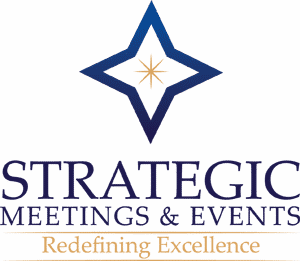Thy Neighbor’s Planner
By Terri Hardin and Rayna Katz
If you ask meeting planner(s) (as we did) if they have ever scheduled meetings over a religious or significant secular holiday, the majority would say “never.” But does that really mean never? Or does it mean “never—if I can help it”?
More than 300 of our readers weighed in on this topic, which—as America seeks consensus within diversity—is more important than ever.
Two-thirds of all planners (67%) responding to MeetingNews said they have never scheduled a meeting over a religious or secular holiday, with a corporate planner(s) and planner(s) aged 51 or more being slightly more vehement (71%). Meanwhile, 27 percent of all planners said they have “occasionally” scheduled a meeting over a religious or secular holiday, of which the largest subgroup, 42 percent, was twentysomething planners.
 The vast majority of meeting organizers steer clear of the mine field, or try to.
The vast majority of meeting organizers steer clear of the mine field, or try to.
“We hold international events and spend a great deal of time working around multiple calendars to avoid any such conflicts,” said Stella DeJean Lowe, corporate communications manager at Phoenix-based IT company NetPro.
However, said Sarah Meyer, conference and meeting planner / education coordinator for Topeka-based Kansas Association of Counties, “We always have somebody unhappy that we start on Sunday—but most of our attendees appreciate us not eating up all of their work week.”
Even secular holidays can offend. Said Michael Thomas, an IT consultant currently residing in the United Arab Emirates: “When I was a fresh graduate, I let myself be bullied into attending a conference and training session that not only went over the weekend but took up a public holiday. I quit a week later and have never done it since; nor will I make my staff do it. Ever. It’s just wrong.”
Forty percent of all planners believe poor planning to be the reason that meetings are held on significant religious or secular holidays and 31 percent cite poor judgment. Some survey respondents are even more pejorative—including corporate planners (42%), thirtysomethings (39%), and fortysomethings (40%).
Said Joan Eisenstodt, of Washington, DC-based Eisenstodt & Associates, scheduling meetings that conflict with religious or secular holidays displays “either total meeting planning incompetence or total disregard for one’s constituents, staff, etc. I don’t know which is worse.”
Eisenstodt, who once chaired Meeting Professionals International’s (MPI) Task Force on Diversity, has taken the organization to task on several occasions over scheduling snafus.
“For many years, MPI has held meetings and events over Jewish and other religious and national holidays,” she said. “Each time, it was brought to the association’s attention and representatives said ‘never again.’ Alas, this year, the European Conference was held during Passover. I wrote to the association and I got excuses, like ‘Passover doesn’t matter in Europe.'”
In fact, the planner organization has struck again. An upcoming familiarization tour, or “Destination Summit” of Colorado, is slated to be held Sept. 28 to Oct. 1, coinciding both with Rosh Hashanah—the beginning of the Jewish New Year and one of Judaism’s holiest days—and Eid al-Fitr, the end of the month of Ramadan, a significant Moslem holiday.
In a written statement on the association’s website, MPI’s chief business architect Katie Callahan-Giobbi said: “MPI has had in place a vigorous date selection and finalization process around events we control and manage since early last year. We are continuously updating it to ensure we demonstrate best practices within our global community and beyond.”
But MPI is not alone among industry associations. ASAE’s Springtime 2009, a one-day event, will take place at the end of Passover.
“It was not our wish to book our event then,” said Amy Ledoux, vice president of meetings and expositions, “but it was the only time between February and June when space was available at the convention center. Could we maybe lose an exhibitor or two? That’s a risk we have to take.”
The Motivation Show next year will start the day after Yom Kippur, the most significant Jewish holiday, which doesn’t conclude until sundown. “We talked to some exhibitors and attendees who said it would affect them somewhat but that they could come for at least part of the first day,” said a spokesman. ” Being that our show is always in September or October, this has always been a problem for us and has impacted us in the past.”
Some planners have learned the hard way the perils of scheduling meetings that conflict with holidays.
Jennifer Baker, marketing and program manager at Chicago-based BUCOM International, said: “We held a summit over Rosh Hashanah once and the turnout was terrible. We had problems fulfilling contractual agreements with our sponsors and lots of credits and refunds were given. In the seven years since then, I have never let that happen again.”
Still, some survey respondents do find holidays to offer business opportunities. Eleven percent consider these days to be value times and independent planners with clients to please condone the practice even more (14%).
If it must be done, there are measures event organizers can take to limit problems, said Christy Lamagna, CMP, CMM, CTSM, president and chief strategist of San Francisco-based Strategic Meetings & Events. “Offering a way to acknowledge the significance of the day—buses to the appropriate gathering place, recording sessions missed, tailoring menus, acknowledging the conflict and explaining why it had to happen over that date, and what you’re doing to accommodate—lessens the blow.
“There are limited instances when the conflict is unavoidable, but most of the time it’s just a matter of someone not doing due diligence or simply being unaware of the reactions the conflict will create,” she continued.
Meeting planners have a particular duty to pay attention to holidays, Eisenstodt noted. “We teach the importance of looking at calendars, querying stakeholders, etc, to ensure dates work.”
Said Lamagna, “Planning a meeting over a religious holiday sends the message that your needs are more important than the attendees,” which is ironic since they’re your target audience.
“Planners should know their attendees,” she said. “What’s more important than their respect, support and participation?”
Tags: Thy Neighbor’s Planner, Planner, Event Planner, Event Planners, Strategic Planner, Strategic Planners, Strategic Events, Event Planning, Corporate Meetings, Corporate Events, Meeting News




